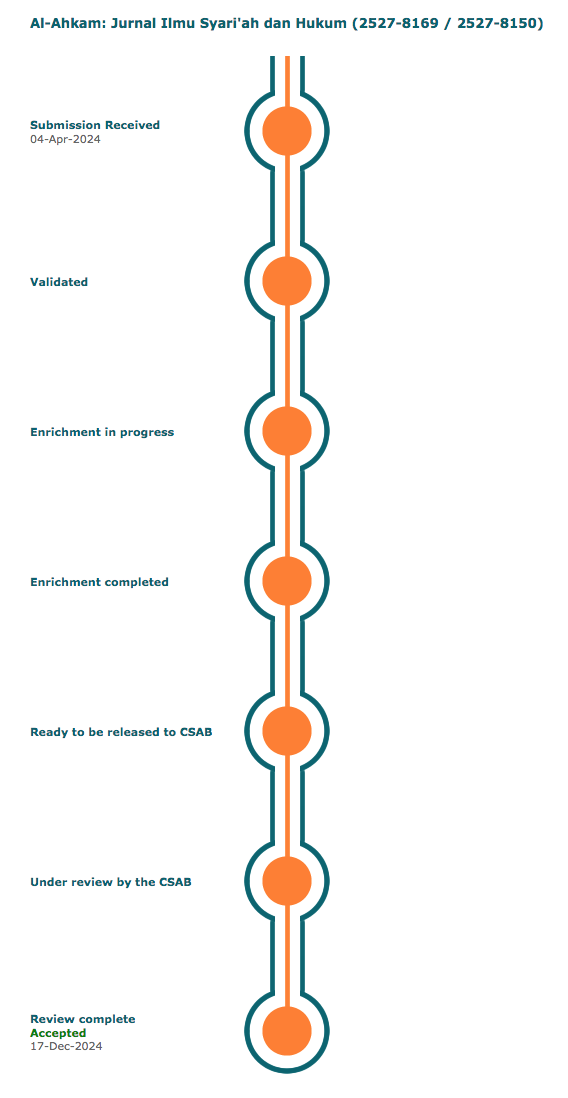The Implementation of Referendum as a Limitation to Autocratic Legalism in the Formation of the Nusantara Capital City Law
Downloads
This study employs a normative legal research method to analyze the rule of law, legal doctrines, and principles related to the implementation of referendums as limitations on legislative authority. Using a statutory approach, the research examines relevant Indonesian legislation, including the 1945 Constitution, Law Number 12 of 2011 on the Formation of Legislation, and the IKN Law. Primary legal materials, such as key statutes, and secondary legal materials, including academic literature, form the basis of the analysis. The study also incorporates comparative insights from South Korea's Constitutional Court decision on capital relocation. Findings reveal that referendums, while essential to participatory democracy, have been marginalized in Indonesia following the repeal of referendum provisions. Furthermore, the study critiques the legislative process of the IKN Law, highlighting its limited public participation and potential indicators of autocratic legalism. By analyzing compliance with democratic principles and the rule of law, the study identifies critical issues, such as co-optation of legislative power, constitutional violations, and compromised judicial independence, emphasizing the need for robust safeguards to prevent authoritarian tendencies in democratic systems. This research contributes to understanding the intersection of legal frameworks, public participation, and governance in Indonesia and beyond.
Downloads
Bornemann, J. (2022). Judicial Responses to Autocratic Legalism: The European Court of Justice in a Cleft Stick? European Papers - A Journal on Law and Integration, 7(2), 651–670. https://doi.org/10.15166/2499-8249/592
Corrales, J. (2016). Autocratic legalism in Venezuela. Authoritarianism Goes Global: The Challenge to Democracy, 26(2), 78–95.
Cortés, F. S. B. (2024). For the sake of Venezuela: Power-Sharing mechanism challenges and opportunities. Araucaria, 26(56), 339–360. https://doi.org/10.12795/araucaria.2024.i56.15
Holgado, B. G., & Urribarri, R. S. (2024). The Dark Side of Legalism: Abuse of the Law and Democratic Erosion in Argentina, Ecuador, and Venezuela. American Behavioral Scientist, 68(12), 1578–1596. https://doi.org/10.1177/00027642241268332
Ibrahim, H. (2017). Referendum Adalah Pemilihan Umum Dalam Bentuk Lain. Hukum Dan Pembangunan, 14(5), 447.
Ibrahim, J. (2007). Teori dan Metodologi Penelitian Hukum Normatif. Bayumedia Publishing.
Jang, J., & Shin, D. C. (2008). Democratizing economic policymaking in south korea: Painfully slow progress toward an executive-legislative balance of power. International Review of Public Administration, 13(1), 59–70. https://doi.org/10.1080/12294659.2008.10805112
McKinnell, R. A. (2023). The Parliamentary Regime: The Political Philosophy of Confederation. Canadian Journal of Political Science, 56(3), 550–570. https://doi.org/10.1017/S0008423923000409
Mochtar, Z. A., & Rishan, I. (2022). Autocratic Legalism: the Making of Indonesian Omnibus Law. Yustisia, 11(1), 29–41. https://doi.org/10.20961/yustisia.v11i1.59296
Mujaddidi, S. (2022). Konstitusionalitas Pembatasan Hak Asasi Manusia dalam Putusan Mahkamah Konstitusi. Jurnal Konstitusi, 18(3), 539. https://doi.org/10.31078/jk1833
Pozen, D. E., & Scheppele, K. L. (2020). Executive Underreach, in Pandemics and Otherwise. American Journal of International Law, 114(4), 608–617. https://doi.org/DOI: 10.1017/ajil.2020.59
Richardson, H. W., & Bae, C. C. (2009). Options for the Capital of a Reunified Korea. The SAIS Review of International Affairs, 29(1), 67–77.
Risti Aulia, D., Putro, H., & Dwi Mufidah, L. (2023). Masalah Perlindungan Hak Masyarakat Adat Terhadap Pembangunan IKN. INNOVATIVE: Journal Of Social Science Research, 3, 2299–3010.
Scheppele, K. L. (2018). Autocratic Legalism. The University of Chicago Law Review, 85(2), 545–584.
Simatupang, H. (2016). Pelaksanaan Undang-Undang Nomor 1 Tahun 1970 tentang Keselamatan Kerja (Studi Pada Kota Tanjungpinang). Journal of Law and Policy Transformation, 1(2), 194–225.
Smibert, J. (2024). Defensive rule of law. Emory Law Journal, 73(5), 1111–1169. https://scholarlycommons.law.emory.edu/cgi/viewcontent.cgi?article=1530&context=elj
Ströbel, L., Koch, I., Salge, T. O., & Antons, D. (2023). To stay, remain or leave: how verbal concepts as response options in political referendums such as the Brexit polls might bias voting outcomes. Humanities and Social Sciences Communications, 10(1), 1–12. https://doi.org/10.1057/s41599-023-02422-2
The Jakarta Post. (2024). Jokowi’s approval rating hits new high: Indikator. The Jakarta Post.
Ulfgard, R. V. (2023). López Obrador’s hyper-presidentialism: populism and autocratic legalism defying the Supreme Court and the National Electoral Institute. International Journal of Human Rights, 27(8), 1267–1291. https://doi.org/10.1080/13642987.2023.2207464
Ușvat, L. F. (2017). Legitimation of the Referendum - the Standard Mechanism of Participatory Democracy. Journal of Legal Studies, 19(33), 84–95. https://doi.org/10.1515/jles-2017-0006
Yuliani, A. (2017). Daya Ikat Pengundangan Peraturan Perundang-Undangan. Legislasi Indonesia, 14(4), 429–438.
Copyright (c) 2024 Ahmad Gelora Mahardika

This work is licensed under a Creative Commons Attribution-ShareAlike 4.0 International License.








